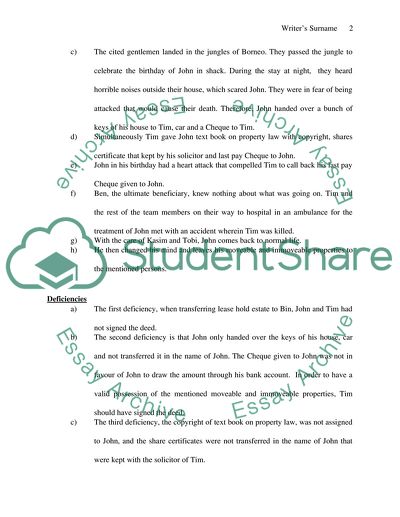Cite this document
(“Property Law Essay Example | Topics and Well Written Essays - 1250 words - 2”, n.d.)
Property Law Essay Example | Topics and Well Written Essays - 1250 words - 2. Retrieved from https://studentshare.org/law/1615317-property-law
Property Law Essay Example | Topics and Well Written Essays - 1250 words - 2. Retrieved from https://studentshare.org/law/1615317-property-law
(Property Law Essay Example | Topics and Well Written Essays - 1250 Words - 2)
Property Law Essay Example | Topics and Well Written Essays - 1250 Words - 2. https://studentshare.org/law/1615317-property-law.
Property Law Essay Example | Topics and Well Written Essays - 1250 Words - 2. https://studentshare.org/law/1615317-property-law.
“Property Law Essay Example | Topics and Well Written Essays - 1250 Words - 2”, n.d. https://studentshare.org/law/1615317-property-law.


